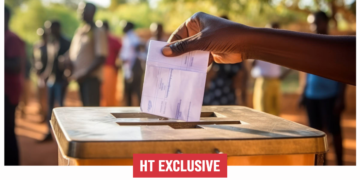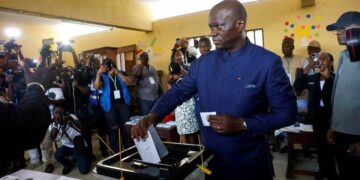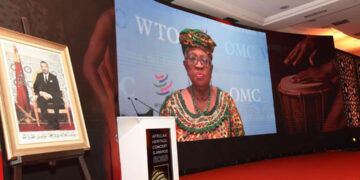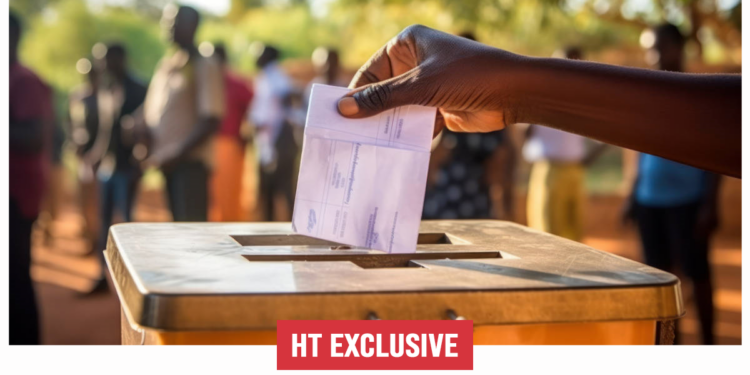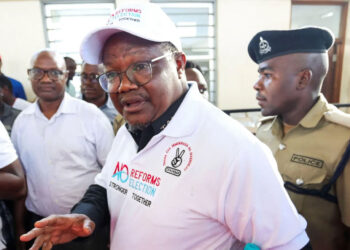By John Ikani
Africa’s political scene in 2024 has been reshaped by a wave of opposition victories, signalling an unprecedented shift in democratic dynamics across the continent. The latest headline-grabbing upset came from Ghana, where former President John Mahama defeated Vice President Mahamudu Bawumia, the ruling New Patriotic Party’s (NPP) candidate, in a landslide victory. The scale of Mahama’s win—a 1.6 million-vote margin—was historic, making him the clear winner mere hours after polls closed on 8 December. By nightfall, Bawumia had conceded defeat, marking a swift and decisive end to the election.
This outcome mirrors a broader trend sweeping the region in 2024, where governing parties have faced unprecedented setbacks. From Botswana to Mauritius, Senegal, and even Somaliland, opposition movements have capitalised on growing dissatisfaction to either unseat ruling parties or significantly weaken their grip on power. Analysts attribute this shift to three key factors: economic hardship, widespread frustration over corruption, and the emergence of more organised and assertive opposition coalitions. With Malawi set to hold elections in 2025, leaders like President Lazarus Chakwera are bracing for similar challenges.
One of the year’s defining features has been the scale of these political reversals. In Botswana, the Democratic Party (BDP), which had ruled since independence in 1966, was virtually annihilated in October’s elections. Once dominant with 38 parliamentary seats, the BDP now holds just four, relegating it to near irrelevance. Mauritius witnessed an equally dramatic transformation in November, as the Alliance Lepep coalition, led by Pravind Jugnauth of the Militant Socialist Movement, secured a mere 27% of the vote. The rival Alliance du Changement claimed 60 of 66 parliamentary seats, completing a political overhaul.
Even Senegal, where President Macky Sall’s government appeared entrenched, saw a stunning reversal. Opposition leaders Bassirou Diomaye Faye and Ousmane Sonko—initially jailed—rode a wave of public and international pressure to freedom. Faye ultimately won the presidency in the first round, with the government’s candidate trailing far behind at 36% of the vote. Meanwhile, in Namibia, despite the ruling party retaining power, its performance hit an all-time low, losing 12 parliamentary seats amid allegations of electoral irregularities.
Somaliland also made headlines as opposition parties secured a major victory in the self-declared republic, demonstrating the growing momentum of democratic accountability even in regions with contested sovereignty. The political transformation there reflected broader public frustration with entrenched leadership and a desire for reform.
However, not all elections in 2024 were triumphs for democracy. Mozambique presented a stark contrast, where accusations of vote rigging and government suppression dominated the narrative. Opposition parties and rights groups decried the electoral process, highlighting logistical issues and the alleged manipulation of results. Despite these challenges, opposition movements across the continent have been emboldened by successes elsewhere, suggesting that even in difficult environments, democratic aspirations persist.
This pattern of upheaval reflects a growing intolerance for corruption, nepotism, and economic mismanagement. In Botswana and Mauritius, voters rejected governments perceived as failing to uphold democratic principles, while in Senegal, attempts to suppress opposition leaders only fuelled public outrage. These developments highlight a broader commitment to democracy across Africa, challenging the narrative that the continent’s politics are stagnant or authoritarian.
Economic discontent has also played a pivotal role. High food and fuel prices have strained household budgets, intensifying frustrations with incumbents. This financial strain not only drove opposition victories but also sparked youth-led protests, such as those in Kenya that rattled President William Ruto’s government midyear. Africa’s electoral trends align with a global wave of discontent: economic grievances contributed to the defeat of Rishi Sunak’s Conservative Party in the UK and Donald Trump’s return to power in the U.S. However, the African context stands out for its emphasis on democratic accountability.
Opposition parties have learned from past mistakes, employing innovative strategies to protect votes and unite fractured movements. In Botswana, the Umbrella for Democratic Change coalition united three opposition parties and independent candidates to deliver a resounding defeat to the BDP. In Mauritius, opposition leaders meticulously monitored the electoral process, ensuring transparency and public trust. Such tactics have not only bolstered opposition success but also strengthened the democratic process itself.
Africa’s democratic resilience is particularly noteworthy against a global backdrop of rising authoritarianism. While some governments in the region, such as Chad and Rwanda, continue to hold tightly to power through undemocratic means, the broader trend highlights a continent increasingly defined by vibrant political competition. Even in South Africa, the African National Congress (ANC) retained power only after dipping below 50% of the vote for the first time since 1994, forcing President Cyril Ramaphosa into a coalition government.
The implications of these shifts extend beyond Africa. They challenge stereotypes about the continent’s political stagnation and offer lessons for global democracy advocates. Civil society, opposition parties, and ordinary citizens have shown extraordinary resolve in demanding accountability and change. As international organisations search for ways to bolster democracy worldwide, Africa’s 2024 election cycle can be referenced as the power of collective action and the enduring appeal of democratic governance.
